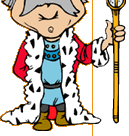 |
|
|
|
|
|
|
|



 |
United States of America (laws can vary by state)
Chapter 33, section 13-3301, define "gambling" as risking something of value in a contest of chance or skill. It is unlawful in Arizona unless it falls under the category of "social gambling". "Social gambling" involves any gambling that is not being run as a business, and which involves players competing on equal terms in a gamble with each other (ie. a game of home poker). You are involved in "social gambling" so long as: i) the benefit of gambling is only the amount of money won and nothing else, ii) all players are of age of majority, and iii) all players enjoy equal benefit and risk against each other.
California Criminal Regulations The infamous Chapter 5 is the Gambling Control Act. This piece of legislature opens up with some moral counselling on the wrongs of gambling, and how it will not be condoned or legitimized by the state. Section 19801 (a) states: "Gambling can become addictive and is not an activity to be promoted or legitimized as entertainment for children and families." The Act goes on to say that permissible gambling is that gambling deemed by the state to not be endangering of public health, safety, or welfare. This introduces the notion that all gambling must be pre-approved by the state through government licensing, as one might surmise it pertains to home gambling. The great emphasis of most of this chapter is in the establishment of the Gambling Board, and how the only 'rightful' gambling is that gambling as approved by the government's board and its licensing. It
is difficult to isolate home gambling out of this Act, but in terms
of penalties, it would seem to amount to an undisclosed period of
time in a county jail or up to a $5000 fine.
Part VII of the Canadian Criminal Code outlines the laws where they govern gaming, betting, and gambling. Section 197 (sub-sections 1-4) outlines terminology used by the word of the Law to describe home gambling. "Common betting house": This is where individuals get together and play games between each other. There is no 'House' collecting and paying bets, but rather a group of people playing against each other in some game of skill and chance (for our interest, Home Poker). The host does not collect and pay bets, nor does the host collect a 'rake', as described below. "Common gaming house": This is where people are enabled to conduct gaming against a second party. Take Home Craps, for example, where individual players play against the host, or House. When somebody's home is used to for somebody to arrange a game where he or she collects and pays bets, it falls under this definition. Some home gamblers refer to a 'rake', where the host collects a small percentage of all pots to help pay for hosting expenses. Use of 'rakes' also falls under this category. "Disorderly house": A general term used to describe either a common betting house, a common gaming house, or completely off the topic, a house used for prostitution. After all, gambling and prostitution go hand-in-hand. "Game": The game itself, complete with rules and conditions. "Keeper": The keeper of the house is the person whose name is on the lease, or is helping the person whose name is on the lease, or is acting on behalf of the person whose name is on the lease. "Onus": If somebody is accused of being the keeper of a disorderly house, it's their job to convince a court otherwise. Even if the game is only started at one house and finished at another (ie. long game of Trips to Win), that first house is still a disorderly house. Section 198 (only one sub-section) outlines what presumptions can be made by the Law when police officers show up at your door under the suspicion that yours is a disorderly house. They are allowed to assume that yours is such a house if one of the following things happen: #1: The police officer was prevented or delayed from entering your house. #2: The police officer did not find a game-in-progress, but did find enough gaming equipment (ie. poker chips, Craps tabletop, home roulette wheel, etc.) to make it clear enough. #3: The police officer did not find a game-in-progress, but did find gaming equipment on the persons of people in the house (i.e. poker chips in everybody's pockets). #4: The police officer did not charge you while you were found in the disorderly house, but after the keeper was convicted and it was proven that you were there, you can be charged. Section 199 (sub-sections 1-7) outlines
the procedure in dealing with a disorderly house . Property: The court reserves the right to keep and/or dispose of any evidence (ie. gaming equipment) that it finds in the disorderly house. Section 201 (only one sub-section) outlines what the keeper gets for his troubles. The keeper of the disorderly house and everybody found in it can be punished with a maximum sentence of two years. The word of the law does not specify that it would be any more or less severe, comparative to the stakes of the game being played.
The Criminal Law of the State of Florida Section
849 of Florida's Criminal Law outlines the laws where they govern
home gambling. According to sub-section 085, a penny-ante game is defined as any game that: Does not contain a pot of more than $10. Does not charge an admission or 'rake' by the host from its players. Is conducted in somebody's home. Is not advertised in advance. Does not contain any player under the age of 18. Debts incurred in such a penny-ante game are not legally enforceable, nor can any participant or host of a penny-ante game be charged in court.
The Criminal Law of the State of Georgia Section 16-12-20 states that a person commits the offense of gambling when they play for money in a game of dice, cards, or balls. That person is guilty of a misdemeanor. A "gambling place" is any real estate used for the purpose of gambling. The keeper of a "gambling place" is further guilty of a misdemeanor of a high and aggravated nature (as an aside, low stakes home gambling is not mentioned, but it would stand to reason that the nature would not be as high and aggravated as that for a misdemeanor for running a private room or home casino).
The Criminal Law of the State of Michigan The Michigan Gaming Control and Revenue Act defines "gambling game" as any dice or card game played for money or some other form of value, "but does not include games played with cards in private homes or residences in which no person makes money for operating the game, except as a player." All laws, crimes, and punishments concerning gambling do not apply to home gambling, so long as no minors are present and so long as the House does not collect a rake. This is double-edged as "cheating" applies only to true "gambling", and could not be punishable by law in a home game.
The Criminal Code of the State of Ohio The Ohio Revised Code 2915 defines a "game of chance" as any game offers up something of value for anything determine at largely by chance (cards/dice). Sub-section .03 defines a "gambling house" as a place where "games of chance" are occuring. The owner or lessee of such a house is guilty of a misdemeanor of the first degree. No mention of misdemeanor where it relates to actually playing in the gambling house.
The Criminal Code of the State of Oklahoma Section 941 immediately spells out that the punishment for administering any game of cards or dice for money or anything of value, is guilty of a felony worth between $500-$2000, and 1-10 years in a state penitentiary. Those caught betting or playing at these prohibited games are guilty of a misdemeanor and shall pay a fine of $25-$100 and 1-30 days in a county jail.
The Criminal Code of the State of Pennsylvania Section 5513 makes clear that a person is guilty of a misdemeanor of the first degree if that person invites or allows other people to gather in a place of his or her control for the purpose of unlawful gambling. To "control" a place is to be its owner, lessee, occupant, or tenant. No mention of those participating in the illegal gambling, only those hosting it.
The Criminal Law of the State of Tennessee Section 39-17-501 defines "gambling" as the risk of anything of value for means of profit, based on a degree of chance. Lawful business transactions, that differentiate game-gambling from business-gambling, are excluded from this definition. Furthermore, a person guilty of gambling has committed a Class C misdemeanor. A person guilty of organizing and/or promoting and/or moderating any gambling, as is the case with Home Craps or Home Roulette, is guilty of a Class B misdemeanor.
The Criminal Law of the State of Texas Section 47.01 opens up with the laying out of terminology where gambling is concerned: "Gambling place": any real estate where gambling is occuring, versus "Private place": any real estate where gambling is occuring that is not open to the public Section 47.02 defines "gambling" in part as any act of playing and betting for money or any other item of value, a game of cards, dice, or other. A defense to prosection for an accused to prove that i) everybody who was participating in the gambling possessed equal odds of win or loss, ii) no person collected economic benefit aside from personal winnings, and iii) that the gambling occured in private. In
other words, home gambling in the state of Texas is legal, but it
must be conducted in a private place with equal odds between all
players.
|
 |
legal disclaimer
